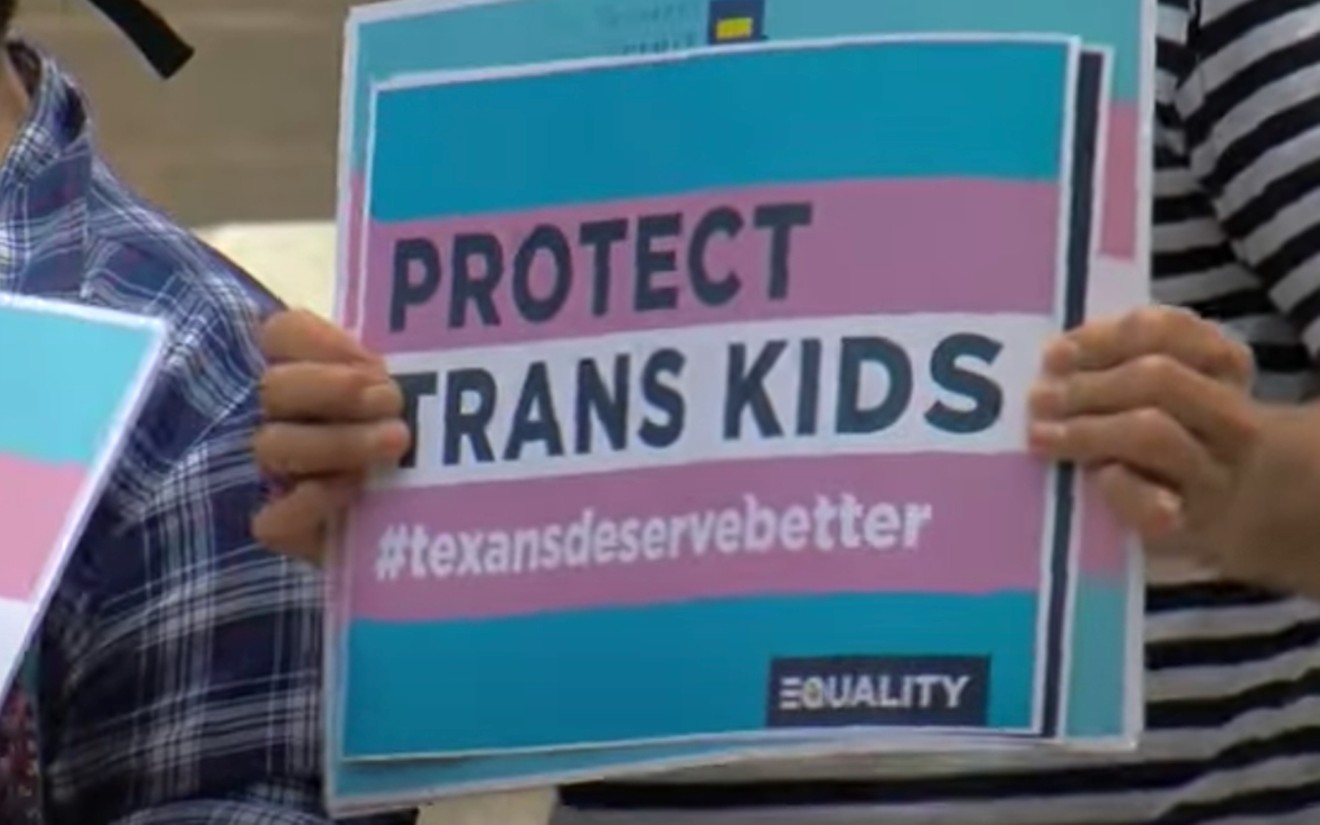The Texas Supreme Court refused to grant an emergency request for temporary relief on a new law banning gender-affirming care on Thursday, allowing it to stand just a day ahead of when it will take effect.
On Friday, Texas transgender children and adolescents will no longer be able to access hormone therapy, puberty blockers and transition-related surgeries.
Thursday’s court decision comes after the state appealed a district court ruling last week that attempted to block the ban, deeming it “unconstitutional.”
Although the law will go into effect, the legal organizations that filed the lawsuit on behalf of the families, physicians and advocacy groups said they are unwilling to back down from the ongoing litigation.
A full hearing on the Texas Supreme Court’s decision is expected.
The legal advocates issued the following joint statement:
“Today’s cruel ruling places Texas’ transgender youth, and the families and medical professionals who love and care for them, directly in harm’s way. The district court heard two days of testimony, weighed the evidence, and made a reasoned and thoughtful determination that the ban likely violated the Texas Constitution, and thus should be delayed while the full case plays out in court. Inexplicably, the Texas Supreme Court disagreed, and transgender youth and their families are forced to confront the start of the school year fearful of what awaits them.Original Story
But let us be clear: The fight is far from over. In its ruling, the district court clearly articulated the ways in which S.B. 14 likely violates the Texas Constitution by infringing upon the fundamental right of parents to make decisions concerning the care, custody, and control of their children, infringing upon Texas physicians’ right of occupational freedom, and discriminating against transgender adolescents with gender dysphoria because of their sex, sex stereotypes, and transgender status. We couldn’t agree more, and look forward to continuing this fight.”
A Travis County District judge issued a temporary injunction Friday on Senate Bill 14 scheduled to go into effect on September 1 that would prohibit transgender children and adolescents in Texas from receiving gender-affirming care and penalize healthcare professionals providing it.
In her decision, Judge Maria Cantú Hexsel wrote that Senate Bill 14 interferes with Texas families’ private decisions and strips parental rights to seek, direct and provide medical care for their children.
The legal team for the plaintiffs – five families, two LGBTQ groups, and three medical providers – had requested that a stay be put in place last week ahead of Senate Bill 14 going into effect on September 1.
In short order Friday, the Office of the Texas Attorney General filed an appeal of Friday’s district court decision to the Texas Supreme Court. Lawyers for the plaintiffs are expected to request a motion for emergency relief.
This ongoing legal battle started with a lawsuit brought against the state last month challenging Senate Bill 14. The case went to trial last week, as attorneys gave oral arguments and witnesses from both sides provided testimony.
The law would restrict transgender children and adolescents’ ability to receive medical treatments such as puberty blockers, hormone therapy and any gender-affirming surgery. Additionally, it would make it illegal for medical professionals to provide this care. If caught, they could risk losing their medical licenses.
Lawyers for the plaintiffs argued that the law violates the Texas Constitution, parents’ fundamental rights and discriminates against transgender youth, according to Brian Klosterboer, a staff attorney with the ACLU of Texas.
“This law seeks to only prohibit treatments for transgender youth with gender dysphoria while allowing the same medical care – including puberty blockers and hormones – to be prescribed for any other minor, for any other reason or medical diagnosis,” he said.
Klosterboer said the legal team also asserted that Senate Bill 14 would strip the ability for doctors and healthcare professionals to provide what they determine as best practice.
Claims made by defense attorneys focused on alleged health risks – fertility issues and decreasing bone densities – and the psychological impacts of pursuing such treatment before adulthood.
Those representing the state brought a “detransitioner” (an individual who stops pursuing medical transition and/or identifying as transgender) to the stand to further their arguments that those who start the process may later regret it.
The defense also referred to so-called experts for additional testimony. This included an evolutionary biologist and other healthcare professionals, who claimed that though people can modify their physical characteristics, they cannot change their gender and that there was insufficient evidence to show the benefits of this treatment outweighed the risks.
Nathan Noe and Gina Goe, a transgender teenager and the mother of a transgender son, both plaintiffs, made remarks opposing the enactment of Senate Bill 14. As did the executive directors of PFLAG, the largest education and advocacy group, and GLMA, an association of LGBTQ health professionals.
GLMA doctors and gender-affirming care providers in the case also came up to the witness stand. They discussed how restricting access to this care would negatively impact their patients and prohibit the ability to act in their best interest.
Dr. David Paul, a pediatric endocrinologist at Texas Children’s Hospital in Houston, said if this treatment could not be provided, he may lose more patients' lives as he spoke about a former patient who committed suicide.
In a press conference following last week’s court proceedings, Alex Sheldon, the executive director of GLMA, reiterated the key detail provided in the doctors’ testimony was that there is not one procedure or treatment offered to trans patients that is not also provided to non-trans patients.
“Make no mistake, our doctors are not being targeted for the type of care they provide. They are not being targeted for the quality of their care. They’re being targeted because of the community they are providing care for,” they said.
Sheldon said alongside the families that are moving out of state or traveling long distances for their children to receive care, the state’s healthcare infrastructure is eroding as doctors are seeking jobs elsewhere and clinics are shutting down.
This is not the first attempt to ban gender-affirming care in the state that families and LGBTQ advocates have had to fight against. Threats to accessing this healthcare occurred in 2021 and 2022. However, courts resoundingly blocked these efforts despite the state appealing these rulings.
Klosterboer said lawyers for the plaintiffs would be ready to request a motion for emergency relief from the appellate courts to try and block the state’s efforts.







